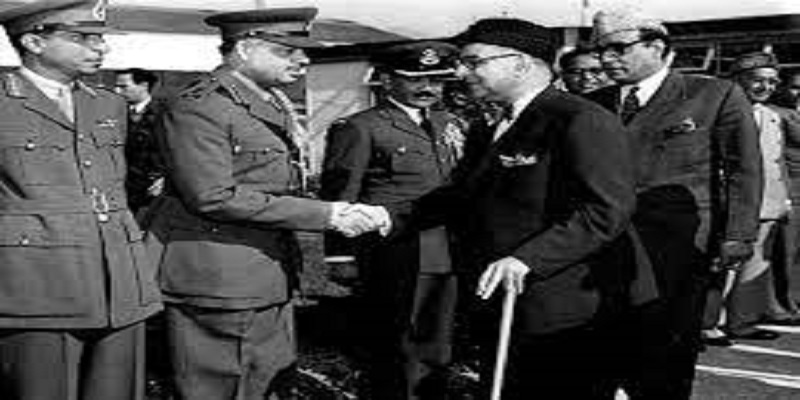The Rawalpindi Conspiracy Case of 1951
The Rawalpindi Conspiracy of 1951, also known as the Rawalpindi Conspiracy Case, was a significant event in the early history of Pakistan that unfolded against the backdrop of political instability, military dissatisfaction, and concerns about the direction of the newly formed nation. This conspiracy marked a crucial moment in the struggle for power and influence between political leaders and the military in Pakistan.
The roots of the Rawalpindi Conspiracy can be traced back to the aftermath of the first war between India and Pakistan in 1947-48 over the disputed territory of Kashmir. The military, led by senior officers like Major General Akbar Khan, played a crucial role in the conflict. However, as the war ended with a ceasefire and the Kashmir issue remained unresolved, dissatisfaction and frustration began to brew within the ranks of the Pakistani military.
By 1951, political tensions within Pakistan were also running high. The country was grappling with economic challenges, social issues, and the struggle to define its identity as an Islamic state. The ruling political elite, led by Prime Minister Liaquat Ali Khan, faced opposition from various quarters, including leftist and progressive groups. Amidst this backdrop, some military officers began to express dissatisfaction with the political leadership, accusing them of corruption, incompetence, and a failure to address the needs of the nation.
The conspirators, largely composed of military officers, devised a plan to overthrow the government and establish a regime that they believed would be more aligned with their vision for Pakistan. The conspirators aimed to address what they perceived as the country's drift away from its founding principles and the perceived betrayal of the goals of the Pakistan Movement.
The plot, however, was uncovered by the intelligence agencies, and the authorities moved swiftly to arrest those involved. On March 9, 1951, the government announced the arrest of several high-ranking military officers, including Major General Akbar Khan, Brigadier Sadiq Khan, and Lieutenant Colonel Ziauddin. The individuals implicated in the conspiracy were accused of planning a coup to overthrow the government and replace it with a military regime.
The Rawalpindi Conspiracy Case became a highly publicized trial that unfolded in the courts of Pakistan. The accused officers were charged with conspiracy to commit mutiny, and the trial became a focal point for discussions about the role of the military in politics and the balance of power between the civilian government and the armed forces.
The trial proceedings exposed the internal fault lines within the Pakistani state. While the government portrayed the conspirators as a threat to the democratic process and the stability of the nation, the accused argued that they were motivated by a sincere desire to protect the principles upon which Pakistan was founded. The trial also brought to light the ideological and political differences among the military leadership.
Ultimately, the verdicts in the Rawalpindi Conspiracy Case varied. Some of the accused were acquitted, while others received prison sentences. Major General Akbar Khan, the central figure in the conspiracy, was sentenced to death but later had his sentence commuted to life imprisonment.
The Rawalpindi Conspiracy had profound implications for the political landscape of Pakistan. It underscored the challenges of maintaining a delicate balance between civilian rule and military influence. The event contributed to the establishment of a tradition of military intervention in Pakistani politics, with the country experiencing several coups in the subsequent decades.
The Rawalpindi Conspiracy of 1951 was a pivotal moment in Pakistan's history, highlighting the complex dynamics between the civilian government and the military. The event shaped the trajectory of Pakistani politics, leaving a lasting impact on the country's struggle to establish a stable and democratic governance system. The repercussions of the conspiracy were felt for years, and its legacy continued to influence the relationship between the military and civilian authorities in Pakistan.

